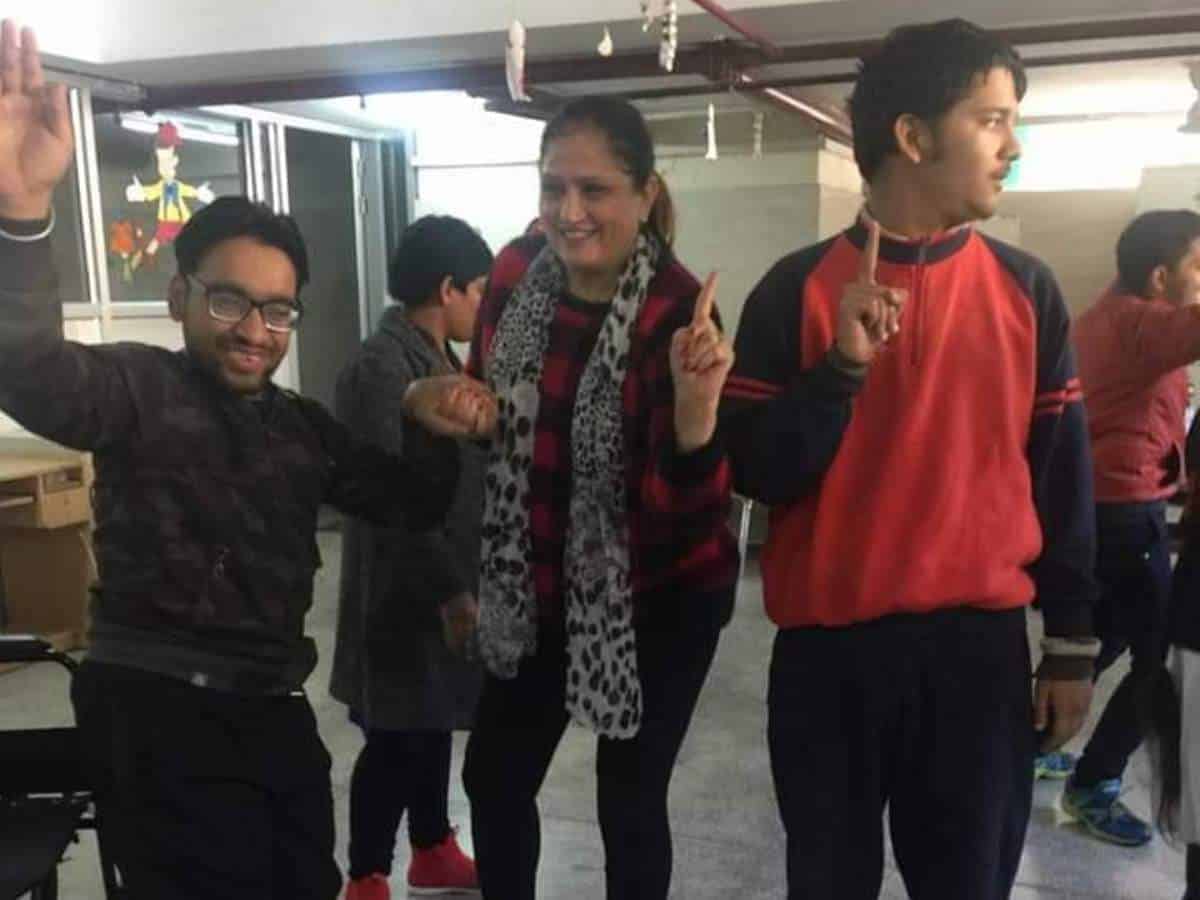By Kulsum Mustafa

Day two of lockdown: 26th March 2020
Inspirational Indian: Chandigarh based Archana Chaudhury is a trainer for Special children in a private Institute SOREM (Society for Rehabilitation of Mentally Challenged). Soft spoken, polite and polished Archana is gentle with her students and treats them with love and respect. Her work requires a positive attitude, total dedication, patience and spirit of giving. Kishwari Konnect salutes all such individuals and applauds their selfless commitment to the upliftment and care of a very special section of Humanity.
Archana is our Hero No 2 in the series. Here Archana gives tips to parents and guardians on how to handle the needs of these special kids in the 21 days national quarantine period when these children are totally home bound.
For the past four years SOREM has been a second home for Archana. Apart from being the administrative head, Archana has been entrusted with looking after a batch of five students who have completed the tenth standard.
“I feel responsible for their development and well being. It is a painstaking task but belive me the one smile from them says a thousand words,” she says of service she finds extremely rewarding.
With the Covid-19 pandemic and declaration of national quarantine everything has changed. The school closed and children had to remain at home. This is a big worry for her and other staff for these children, many with autism and other special needs will be able to function during the 21 days lockdown, cooped within the four walls of their house,
The school has prepared an advisory for the parents and asked them to follow it in toto. Here Archana shares it so other parents with special children can benefit
Guidelines for Special child’s therapy home program :during lockdown
1) Do not change the normal sleeping pattern. Don’t make the child sleep for longer hours than needed.
2) Make a daily time table which should be predictable. Inform the child in advance about transitions of activities.
3) Put up the time table in a visual format.
4) Make a list of activities of daily living like Toilet, Brushing, Bathing, Dressing, Eating, etc.
5) For each activity, write your child’s percentage of independence.
e.g. Brushing – 75% independent
Bathing – 50% independent, etc.
6) Gradually increase your child’s independence in daily activities. Make small goals e.g. My child’s independence in brushing would increase from 75% to 85% in a week’s time.
7) Prioritize the activities which are most important at present and start working on them.
8) Give free play in between. .Do not try to impose your activities all the time. The interval of free play varies for every child.
9) Keep the child’s screen time to the minimum.
10) Use physically demanding purposeful activities like
– army crawls under a tunnel made by dining chairs.
– jumping on mats kept at a distance.
– climbing stairs (with COVID precautions)
– playing cricket inside the house
– kicking a ball in a goal (indoor).
11) Use activities which would involve turn taking like
– Snakes & Ladder, Ludo (use the physical boards instead of the ones available on phones or ipads). There are many benefits of not using the screen for such games e.g. cupping of the hand is improved while rolling the dice.
12) Choose activities taking into account the child’s interest.
13) Engage the child in household activities like folding and keeping washed clothes, drying washed utensils with a cloth, making bed, etc.
14) Respect your child’s emotions.
15) Observe if there is a pattern to your child’s undesired behavior or emotional outbursts – sensory issues/time of the day/people around/ certain activities, etc. Try changing the external factor which may be responsible for your child’s untoward behavior.
16) Work on the Social skills of identifying others, giving specific item to specific people, etc.
17) Make your child complete craft projects like pot painting, making a birthday card, etc.
18) Lastly, keep yourself stress free and use this time to strengthen your family bonds.

